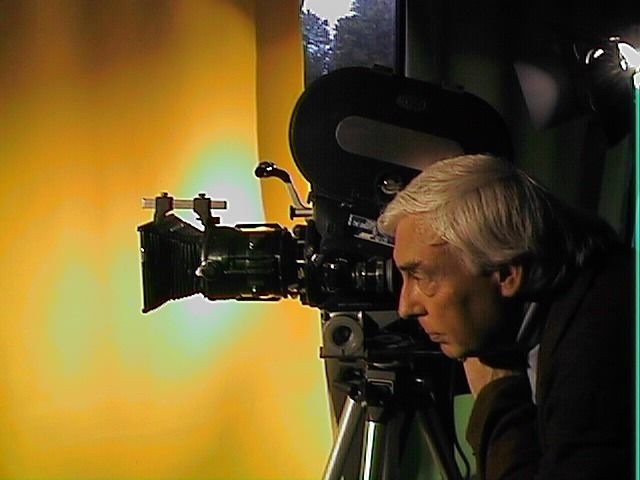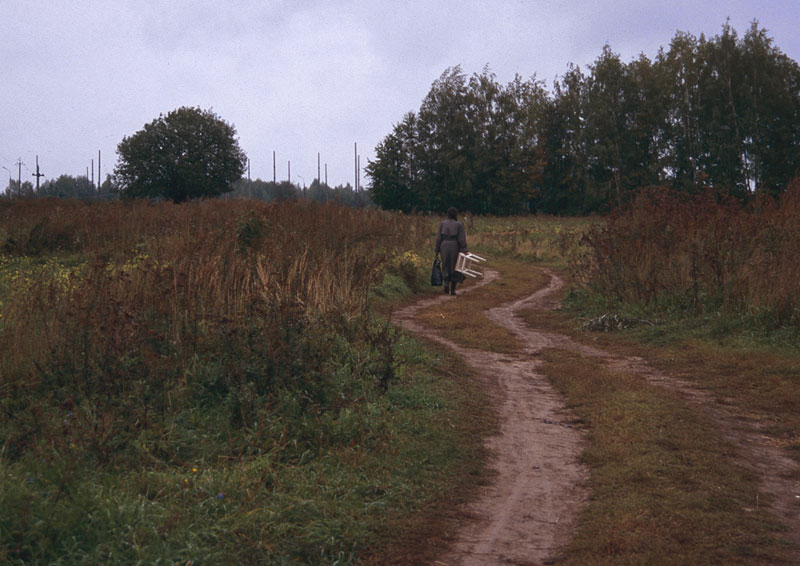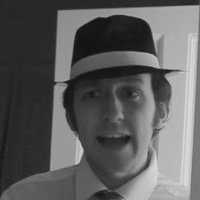ASK & DISCUSS
INDEXHow Does One become a Camera Operater?
11 years, 4 months ago - Tariq Khodabocus
Hello Shooters,
I have been tearing my hair out trying to find an answer to this with no joy. My research so far has left me at a stand still.
I have applied to an apprenticeship scheme through Cylfe, which, considering I haven't heard anything as of yet does not look promising and also ITV's insight scheme, but rather than waiting for a response, which is not guaranteed, I really just want to make my own way, but don't know how to.
I would like to be a camera operator, but have not been able to uncover a concrete way, how I should start or go about doing so.
I believe the shooters community are the best people to ask and would appreciate some guidance, advice and tips, and perhaps some humorous insight.
I really appreciate your time and expertise shooters.
Only members can post or respond to topics. LOGIN
Not a member of SP? JOIN or FIND OUT MORE
11 years, 3 months ago - Tariq Khodabocus
Thanks a lot for the info people I really do appreciate the time you have all taken to answer my question. I have brought some more books for me to improve my knowledge on the subject. I brought Jack Cardiff's 'Magic Hour, thanks a lot for that Gillian plus some other Film making books.
More education should help me get a clearer understanding.
11 years, 4 months ago - Tariq Khodabocus
Thank you very much Marlom, Paddy and Jamie for the responses.
I have to say that I am based for the moment in south Wales and while travel is not a problem, the Gloscol course would be a bit to far for me at the mo Marlom.
How does one volunteer as a runner Paddy? I am finding it really difficult to get my foot in the door. A lot of TV production has moved to Cardiff BBC Roath Lock studios, but it is terribly closed off to new comers and upstarts.
I am interested in TV and Cinema, Jamie. I ultimately want to work as a Director. I really have no shooting experience and would really like to get a paying job in the industry gaining experience.
My thinking is to work in a technical role, camera operator, and work on my own projects in my own time.
11 years, 4 months ago - Franz von Habsburg FBKS MSc
You are, Tariq, because although the director doesn't operate the camera (although he may have the occasional squint through the viewfinder) what is actually happening is that there is an interesting relationship between the two rôles: the director chooses the position of the camera and the focal length of the lens. By framing the shot, the operator is then fine tuning what the director had in mind, perhaps from his storyboard/mise-en-scène. I knew Jack Cardiff extremely well as he became patron of my Brighton Film School. Get lots of books: there are plenty of good professional ones. And do PLEASE bother to learn the maths of lensing and film grammar. Also learn editing. That's where it ends up, so you will learn about bad camerawork and directing!
11 years, 3 months ago - Tariq Khodabocus
I brought Hands-on Manual for Cinematographers David Samuelson, The Five C's of Cinematography, The Camera Assistant's Manual and some others.
11 years, 4 months ago - GILLIAN MCIVER
This is not an answer to your question I am afraid more of a comment. I just read the superb memoir 'Magic Hour' by Jack Cardiff and what was so noticeable was how, in those very early days of British cinema, everybody working on a film got paid. Including Cardiff as a teenage runner (they did not call it that then). As he moved up he got paid a little bit more. His family background was the opposite of wealthy and connected, so if he had not been paid every step of the way, he would never have been able to become a cameraman. And the greatest DP Britain has ever produced. Imagine that.
it's funny to think that those benighted, unenlightened illiberal days were so progressive on the issue of pay.
(Let me just say now I have no problem with the idea of volunteering on indie low budget productions, but for funded or (especially) TV productions, I think it's appalling not to pay people.)
Anyway, we are where we are, and so my advice is to get involved on every project you can see a role for yourself and do it for free (try to get expenses if it's appropriate) until you have enough experience that you can ask for a fee.
However I will say that to be a really great camera operator you probably need to be in love with the camera, not "really" want to direct. Even Cardiff had to face that reality.
11 years, 4 months ago - Paddy Robinson-Griffin
I would start by volunteering as a runner, and then make allies in the camera department, then as a camera runner, then as a clapper/loader, then as a focus puller, then as a camera operator. It'll take a while, but it's a free apprenticeship that will start paying as you work up through the ranks - and you'll learn moist of what you need to know along the way if you watch and ask intelligent questions. You'll also learn how the camera department works, which is essential for working in the industry!
11 years, 4 months ago - Jamie Kennerley
Okay, two things.
One - John is right. Simply start operating a camera. Make your own stuff. Volunteer on jobs or collaborations advertised on Shooting People. If there's nothing close to you home, go stay with a mate in Cardiff. Be pro-active. Don't look for just official channels, you meet the official people by doing unofficial work too, and they can help you get a foot in the door.
Two - you say you ultimately want to work as a director. Then why are you looking to become a camera operator? You're slightly wasting your time, and potentially the time of the people who train you up, and are much less likely to stick with it if your ultimate goal lies elsewhere. For a moment then I though you wanted to become a camera operator because you wanted to become a camera operator!
11 years, 4 months ago - Tariq Khodabocus
I do not see being camera operator as a stepping stone to becoming a Director, rather than a technical craft that I am interested in and will be useful for an independent self shooter. If I do eventually make my own films I don't think I'll stop being a camera operator. Working on set is where I am trying to be, and camera operator is of great interest to me.
am I missing something?
11 years, 4 months ago - Marlom Tander
http://www.gloscol.ac.uk/courses-and-departments/course-details/AM121273 or similar near you perhaps? Gloscol has a great course leader (personal friend) who is focussed on trying to ensure that students get the chance to do good CREDITED work on serious projects, as well as being taught stuff.
11 years, 4 months ago - John Waters
Not to be facitious, but my first thought is, 'start operating a camera' - whatever it is, a phone, a 50p ebay webcam, just go at it and start getting any experience.
11 years, 4 months ago - Jamie Kennerley
What kind of camera operator do you want to be Tariq? Do you want to work in drama? Cinema? Documentary? News? They are pretty different routes.
11 years, 3 months ago - Franz von Habsburg FBKS MSc
Whilst Jack's book is a great read, it isn't technical. The one technical book you must have is David Samuelson's Cinematography. It's THE professional DP's handbook. I can list lots more, but that's the one. The classic (if you can find a copy) is The Five Cs of Cinematography.
11 years, 4 months ago - Marlom Tander
"I don't really have a prized possession I can think of, it would probably be a camera, if I had one."
Why don't you have one?
http://www.ebay.co.uk/itm/SONY-HVR-HD1000E-CAMCORDER-MINI-DV-HDV-HD-PROFESSIONAL-DIGITAL-PRO-VIDEO-CAMERA-/181436357834?pt=UK_AudioTVElectronics_Video_Camcorders&hash=item2a3e731cca
That's Saturday job money. OK, so you'll be limited to available/practical lights and will need to be very careful about how you treat sound, but some more savings soon you'll have a beachtek box, XLR mic and some lights, and in the meantime learning how to work within constraints can be creative fuel.
How old are you?
If you are young then really, going on a course has to be the main thing, even if that means moving away from home. Or commuting. FWIW a 12 month season ticket Cardiff/Gloucester is £2900, about 12 a day, and it might be that grants or support are available. Or you get an age / student related discount. One person I know used to commute daily from Gloucester , by train, to school in London from age 11. Door to door that's about 7 hours a day. In his case it paid off and he has a very good career in the field that interested him.
If you are older, then really you absolutely have to do something, anything, to get the money to start shooting and just learn by doing. Meanwhile, courses and networking at all opportunities - fact is that most people in the biz DO NOT get a job by applying for one, they get it because someone already knows and likes them and opens a door.
Good luck.





